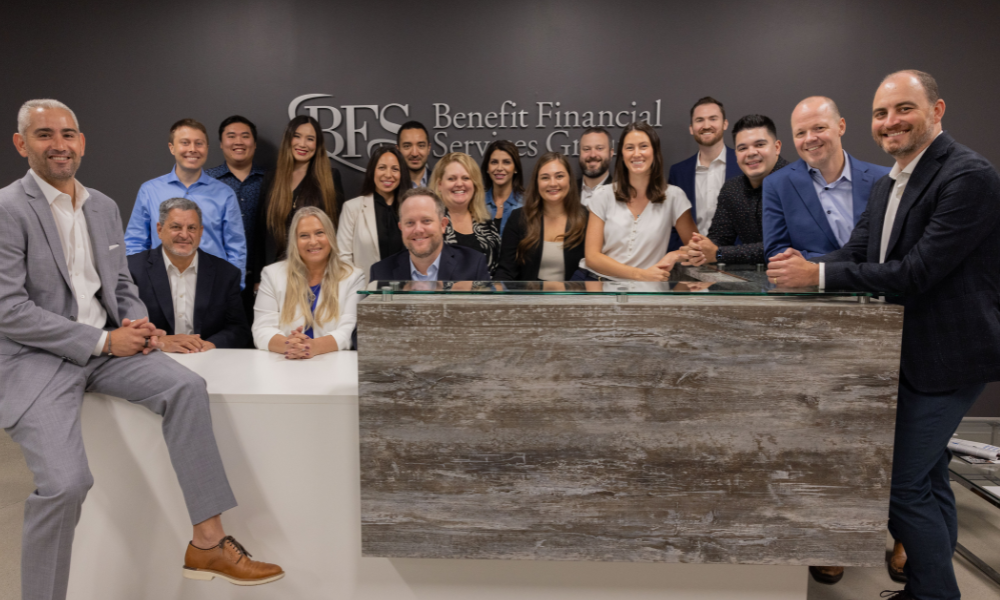

Paul Horn, senior financial planner at BFSG, is upfront about how the investment landscape has shifted over the past decade. “We’ve been seeing a big change in who the stock market leaders are over the last 10 years,” he explains. "For the last 10 years, you have wanted to be in large-cap growth and the S&P 500. [However], today’s winners traditionally are tomorrow’s losers, and vice versa.”
And it’s this prediction that’s already led Horn to adopt a more conservative stance for his clients’ financial planning.
“For the next seven to 10 years, we just have lower projected returns, given the current valuation levels and market environment,” he says.
For the past decade, sticking to traditional stocks and bonds was enough. However, looking ahead, tangible assets like real estate and gold may outperform paper assets like stocks and bonds. Horn’s response?
“We’re looking to increase exposure to alternatives and real estate for our clients, trying to prepare for what we are kind of seeing there. Gone are the days of just the 60/40, stock-to-bond portfolio.”
Diversification is now the name of the game, with Horn’s strategy reflecting the need to address rising risks like inflation and longevity, critical concerns in the face of an evolving global economy.
With life expectancy rising, Horn is focusing on long-term planning for his clients.
“Social Security, when it first started, the life expectancy for someone collecting was six to eight years,” he notes. “Nowadays we’re pushing past 20 years. Things are more expensive, too, so we have to deal with issues like inflation and managing healthcare costs. If we have a client who wants to do big travel trips, for example, we may just have them stay locally and spend less while the markets are down.”
Balancing the need for growth with wealth preservation is a priority for Horn. Total return strategies allow the firm to better manage risk and provide long-term growth while helping mitigate concerns like inflation. Tax sensitivity is also a major consideration, with Horn pointing out that tax planning plays a key role in minimizing the burden for retirees.
“The one constant in this industry is change,” adds Horn. He recalls California’s Proposition 19, which changed how beneficiaries inherit property taxes. BFSG worked quickly to help clients gift properties before the deadline to preserve favorable tax treatments. The firm is also preparing for the potential sunset of the Tax Cuts and Jobs Act in 2025.
“We’ve identified all our clients from an estate-planning perspective whom this may impact,” he says. By staying ahead of potential changes, Horn ensures that his clients are always positioned to make the best decisions based on current legislation.
“The day that I stop learning is the day I become a bad advisor, and that’s going to be my cue to retire.”
When asked whether clients are gravitating toward more values-based investments, Horn admits he has noticed some interest but not as much as he anticipated. BFSG offers ESG strategies that are customizable based on clients’ personal beliefs, but the demand hasn’t met expectations.
“We started the ESG strategy back in 2019, [but] it has not grown or had the interest that we kind of anticipated,” he says. While there is a niche for clients who want to use ESG investing, most clients prefer a simpler approach like excluding companies or industries from their portfolios, and most of the impact BFSG sees is in charitable giving.
“For clients looking to make an impact with their investments, the biggest thing that we’re doing is the charitable giving,” Horn explains. Many clients are not necessarily looking to invest in ESG-focused companies but are more interested in directing their wealth toward causes they believe in. Charitable planning has also seen more traction, especially through vehicles like donor-advised funds (DAFs).
DAFs have been lauded as one of the most popular ways to conduct philanthropy in a super tax-efficient way. DAFs are essentially a “giving account” established by a charity, allowing donors to make contributions and receive an immediate tax reduction.
“The biggest thing that we’re doing is around charitable giving,” adds Horn. “People are not wanting to invest in the companies, but instead wanting to put their money where their mouth is – whether it’s [us] helping them find charities for causes abroad in the Middle East, or with the war between Russia and Ukraine, or it’s something here locally in charities that they believe in. We’ve been doing a lot more planning around donor-advised funds as well as a lot more of the qualified charitable donations [QCDs] from the IRAs.”

The two firms violated the Advisers Act and Reg BI by making misleading statements and failing to disclose conflicts to retail and retirement plan investors, according to the regulator.

Elsewhere, two breakaway teams from Morgan Stanley and Merrill unite to form a $2 billion RIA, while a Texas-based independent merges with a Bay Area advisory practice.

Analysis of four-year data shows average account balances nearly doubling among steady savers, with younger workers seeing the largest percentage growth.

Survey research shows just over half of Gen Xers satisfied with advice as retirement and economic anxieties take a toll.

Two reports reveal investor behavior including earlier participation of young Americans.
Orion's Tom Wilson on delivering coordinated, high-touch service in a world where returns alone no longer set you apart.
Barely a decade old, registered index-linked annuities have quickly surged in popularity, thanks to their unique blend of protection and growth potential—an appealing option for investors looking to chart a steadier course through today's choppy market waters, says Myles Lambert, Brighthouse Financial.
